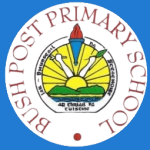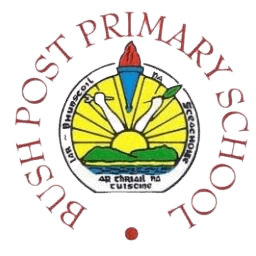Subject Departments
The following are a list of the subject departments at Bush Post Primary:
Maths is one of the core subjects which is compulsory in every school. Project Maths, the current leaving cert curriculum, provides students with the opportunity to gain an understanding of and familiarity with several branches of mathematics, as well as developing their overall appreciation of the subject. The branches, or ‘strands’ in question have been chosen because they have applications in everyday life, are useful in other disciplines, and provide a foundation for further education. As a result, maths is very accessible to students at all levels.
Department Members
Joe Corcoran – Head of Department
Sheena Gartland
Caoimhe Byrne
Elizabeth Bell
Claire Dugdale
Deirdre O Hanlon
Darragh Mc Cann
Ciara Harkin
Goretti Malone
Junior Cycle English
English in Junior Cycle aims to develop students’ knowledge of language and literature, to consolidate and deepen their literacy skills and make them more self-aware as learners.
The specification for Junior Cycle English focuses on the development of language and literacy in and through the three strands:
- Oral Language
- Reading
- Writing
The elements of each of these strands place a focus on communicating, on active engagement with and exploration of a range of texts , and on acquiring and developing an implicit and explicit knowledge of the shape and structures of language. There is a strong focus on the oral dimension of language, including the vital importance of learning through oral language. This makes the English classroom an active space, a place of ‘classroom talk’ where learners explore language and ideas as much through thinking and talking as through listening and writing. While the learning outcomes associated with each strand are set out separately here, this should not be taken to imply that the strands are to be studied in isolation. The student’s language learning is marked by a fully integrated experience of oral language, reading and writing.
To give further emphasis to the integrated nature of language learning the outcomes for each strand are grouped by reference to three elements :
- Communicating as a listener, speaker, reader, writer
- Exploring and using language
- Understanding the content and structure of language
Students will complete 2 CBAs over the course of Junior Cycle and then an Assessment task in 3rd year based on their CBA 2.
- CBA 1: Oral Communication
- CBA 2: Collection of Student texts
Leaving Certificate English
The Leaving Certificate student is invited to explore the range, variety and power of the English Language and English Literature.
This course aims to create an awareness of how ‘we live in the midst of language’, how the study of language expands our horizons and how literature can challenge our thinking, stimulate our imagination and enrich our lives.
The language course focuses on five different modes of language:
- The language of information
- The language of argument
- The language of persuasion
- The language of narration
- The aesthetic use of language.
These modes are discussed and explored in class and the student should become skilled at identifying the different ways in which language works. Students are also taught how to become critical, analytical readers and writers. Writing exercises include Report Writing, Letters, Diary Entries, Newspaper Articles and Composing.
Assessment
There are two terminal examination papers at Higher and Ordinary Levels.
- Paper I focuses on language and composition
- Paper II focuses on literature. Each paper carries equal marks.
Paper I consists of three questions:
- Reading/Comprehending
- Writing in different genres (functional writing)
- The Composition
Paper II consists of three sections:
- Section I: The Single text [for example the prescribed Shakespearean play] which is studied in detail.
- Section II: The Comparative Study. This section of the paper requires students to compare and contrast 2-3 texts under prescribed modes. These texts may be films, plays and/or novels.
- Section III: Poetry Unseen and Prescribed
Unseen Poetry: This encourages students to apply their existing knowledge and understanding of poetic techniques and styles to a poem that they have not studied/seen before.
Prescribed Poetry: Higher Level:Teachers select between 30-36 poems from the eight prescribed poets at Higher Level. Four poets will appear on the exam paper at Higher Level (note: changes were made in 2020 and 2021 as students were able to select from a choice of five questions).
Ordinary Level: Twenty or so poems are prescribed at Ordinary Level. Candidates must write on one poet. The texts of three poems are printed on the paper at Ordinary Level. Candidates must write on one poem.
Gaeilge
Leaving Certificate Irish builds upon the language developed during Junior Cycle. All four language skills are further developed in order to enable the learner take an active part in the bilingual society in which we live in today in Ireland. The learner is encouraged to develop and share her/his views on a range of topics. The learner is also prepared during Senior Cycle for further study in or through Irish.
In the post-primary junior cycle, the study of science contributes to a broad and balanced educational experience for students, extending their experiences at primary level. It is concerned with the development of scientific literacy and associated science process skills, together with an appreciation of the impact that science has on our lives and environment. In an era of rapid scientific and technological change the study of science is fundamental to the development of the confidence required to deal with the opportunities and challenges that such change presents in a wide variety of personal and social contexts.
Arising out of their experience in the junior cycle, it is hoped that many students will be encouraged to study one or more of the science subjects in the senior cycle, thus preparing themselves for further study or work in this area
Biology is the study of life. Through the study of biology students employ the processes of science to explore the diversity of life and the inter-relationships between organisms and their environment. They become more aware of the use of living organisms and their products to enhance human health and the environment.
Physics describes the laws and forces that govern natural phenomena. This subject aims to enhance students ability to think logically, observe and understand scientific method. It offers a general education in physics for all students, enabling them to develop an understanding of the scientific method and their ability to observe, to think logically, and to communicate effectively. Science, technology and society (STS) is an integral part of the syllabus so that students can be aware of the principles of the applications of physics in the everyday world.
Leaving Certificate business creates an awareness of the importance of business activity and develops a positive and ethical attitude towards enterprise. The learning experiences in business develop students’ critical thinking, creative and organisational skills while enhancing literacy and numeracy skills using real-life examples. Business provides students with a learning foundation for a wide range of careers in business, marketing, law, enterprise and management.
- Business studies
Leaving Certificate accounting provides students with the knowledge, understanding and skills in accounting and financial management necessary for managing personal and basic company accounts. The learning experiences in accounting develop students’ organisational, logical thinking, planning and problem-solving skills for their future life, work and study. It also develops their numeracy skills within the context of business and enterprise.
Geography is the study of people, their environment, and the interaction between the two. The course follows from Junior Cert Geography, and covers very similar topics (such as rocks, soils, oceans, population movements, map-reading, and economic activities) in a lot more detail. There are a large number of optional sections on the course, allowing students to focus on the sections of the course which they like.
In Leaving Certificate engineering is the study of mechanical engineering and the students develop the skills and initiative in the planning, development and realization of technological projects in a safe manner.
A new History syllabus was introduced in 2004 to make History more interesting, approachable and stimulating.
History aims to record and analyse things which have happened in the past, with an emphasis on both how and why events occurred. It deals with human experience and it is often studied out of personal interest, but also develops important skills such as self-discipline and critical thinking which are of life-long importance.
The Home Economics syllabus (social and scientific) provides students with knowledge, understanding, skills and attitudes necessary for managing their own lives, for further and higher education and work. The learning experiences in home economics develop flexibility and adaptability in students, prepare them for a consumer-oriented society and provide a learning foundation for a wide range of careers in food, textiles, science, design, social studies and tourism.
Geography is the study of people, their environment, and the interaction between the two. The course follows from Junior Cert Geography, and covers very similar topics (such as rocks, soils, oceans, population movements, map-reading, and economic activities) in a lot more detail. There are a large number of optional sections on the course, allowing students to focus on the sections of the course which they like.
The Music Department in Bush Post Primary School is very active with the subject being offered at both Junior and Leaving Cert. The course is divided into 3 main componenets; Performing, Listening and Composing. Each student will develop their knowledge of aural skills, music theory, classical and popular music as well as an in depth study of Irish music.
Performance is a key aspect of this course at both Junior and Leaving Cert. Students will learn an instrument in groups at Junior Cycle and will specialise in an individual instrument at Senior Cycle. This performance is worth 25% of the overall mark at Junior Cycle and 50% of the overall mark at Senior Cycle.
The Music Department also runs the school choir, which has proven very successful over the past few years, taking part in various Choral Festivals, Christmas Carol Services and performing at school and community events and won the All Ireland Light Entertainment Festival Best Choir and Best Director Awards in Cork in 2011. Our school Trad Group rehearses once a week and regularly performs at events in the school and community and are very highly regarded.
Creating and sharing media in a digital environment has become an increasingly important feature of how young people communicate and engage with each other and with the wider world. Young people are actively manipulating digital media to participate in social and cultural life, to pursue their interests and to express themselves online. Through studying this Digital Media Literacy short course, students will learn to use digital technology to engage in self-directed enquiry, to discriminate between multiple sources of information and to participate safely and effectively in an online environment.
Creating and sharing media in a digital environment has become an increasingly important feature of how young people communicate and engage with each other and with the wider world. Young people are actively manipulating digital media to participate in social and cultural life, to pursue their interests and to express themselves online. Through studying this Digital Media Literacy short course, students will learn to use digital technology to engage in self-directed enquiry, to discriminate between multiple sources of information and to participate safely and effectively in an online environment.

